Iran's Exports To China, India, Turkey Drop Significantly
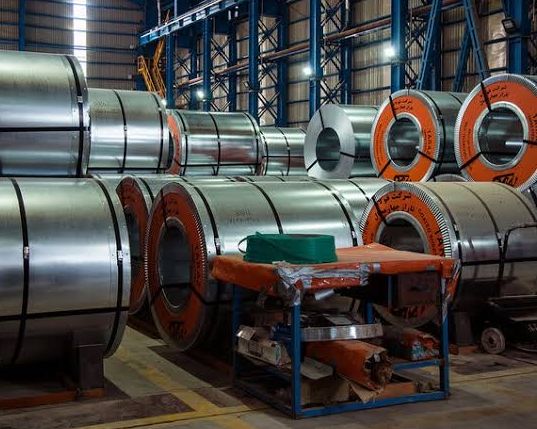
Official figures show a major drop in Iran’s exports to China, India and Turkey in the first quarter of 2023.

Official figures show a major drop in Iran’s exports to China, India and Turkey in the first quarter of 2023.
Turkey's Official Statistics Center has reported that the country's imports from Iran have fallen to $450 million, a 22% drop. The numbers announced by the Indian Ministry of Commerce also show a 6% drop in imports from the Islamic Republic, hitting less than $162 million.
Official Chinese customs data also shows that imports from Iran were $2.9 billion in the first quarter of 2023, which is a decline of more than 41% compared to the first quarter of 2022. The reasons for the decline in trade with Iran's major Asian ally are not clear, but during recent months, Iranian economic experts and businessmen had said that Russian products are dominating the Chinese market.
Amin Ebrahimi, CEO of Iran’s Khuzestan Steel Company, claims that by supplying steel below global prices, Russia has captured the markets that Iran had created for itself during four decades of sanctions.
Meanwhile, Secretary General of the Petrochemical Industry Employers Association, Ahmad Mahdavi Abhari, told ILNA news agency on Saturday that the export of urea and methanol has decreased by 2.5 million tons since March 21, due to lack of natural gas needed at plants.
He said this will lead to a $700 million drop in exports because compared to last year the figure has decreased by 20-25%.
The Islamic Republic’s petrochemical sector needs natural gas to operate, and producers sustain losses because of shortages.
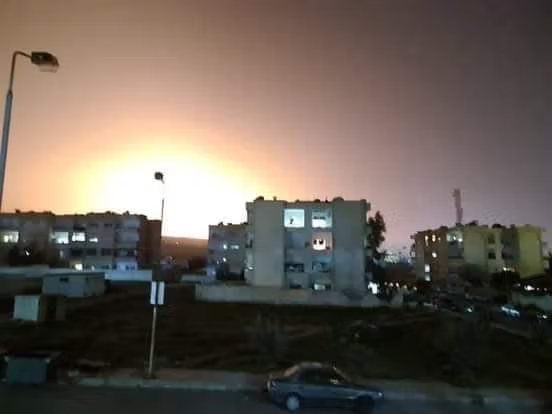
Israel reportedly shelled the positions of Iran-backed Hezbollah near its northern borders with Syria in Al-Quneitra province, near the Golan Heights.
More than 20 shells were fired Monday morning at a position controlled by the Lebanese Hezbollah, which has established many similar bases near the Israeli border.
So far, there is no official word from the Syrian or Israeli governments about the attack, that came barely three weeks after extensive terror and rocket attacks by Iran-backed Palestinian groups against Israel.
Times of Israel reported that artillery strike was reported by Sham FM, a Syrian radio station affiliated with the regime of Syrian President Bashar Assad.
Israel also reportedly dropped leaflets warning Syrian troops not to cooperate with Iranian militia and allow them to operate near its borders. Names and photos of Syrian army officers allowing these militias to operate in the area were printed on the leaflets.
“We are closely watching and aware of the ongoing intelligence cooperation with Hezbollah within the Syrian army’s positions in the region, including near the Israeli border. Your cooperation with Hezbollah has… brought you more harm than benefit. Cooperation with Hezbollah leads to harm!” the flyer read.
The Syrian Observatory for Human Rights, a London-based war monitor also reported the Israeli attack, saying that a similar artillery strike took place on April 17.
There are still no reports about possible casualties.
Iranian officials have boasted of having destabilized Israel by the early-April rocket attacks by the Palestinians and with a new vigor has vowed to help militant forces to continue the campaign, saying that Israel has become weaker and will succumb to the “resistance,” a term used to refer to Tehran’s proxies.
Concerns have been growing in Israel over a possible multi-front war, with attacks coming from Gaza, Lebanon and Syria. Army intelligence has warned of the danger, but Iran International's correspondent in Israel reported that the chairman of Israel's national security council Tzachi Hanegbi disagrees with the assessment for the near future.
Israel has been extensively conducting air and missile strikes against Iran’s military presence across Syria at least since April 2017. Thousands of attacks have targeted weapons depots, and other military positions controlled by Iran’s Revolutionary Guard.
Iran ships large quantities of arms to Syria and maintains up to 30,000 Afghan, Pakistani and Iraqi militiamen in addition to Hezbollah fighters to turn Syria to a new front against Israel.
Israel has not taken responsibility for the great majority of these attacks but has vowed never to allow Iran to get entrenched in Syria.
Iranian officials have intensified their anti-Israeli rhetoric since the military confrontation earlier this month, with claims of victory and threats of annihilating Israel coming on daily basis.
Iranian media reported Monday that Foreign Minister Hossein Amir-Abdollahian spoke with Hamas leader Ismail Haniyeh by phone, reiterating Tehran's "spiritual and political support" for Palestinians. Haniyeh reiterated "the serious will of Palestinian groups" to continue "the resistance".
The Hamas leader also welcomes a Saudi Iranian agreement in March to restore diplomatic relations.
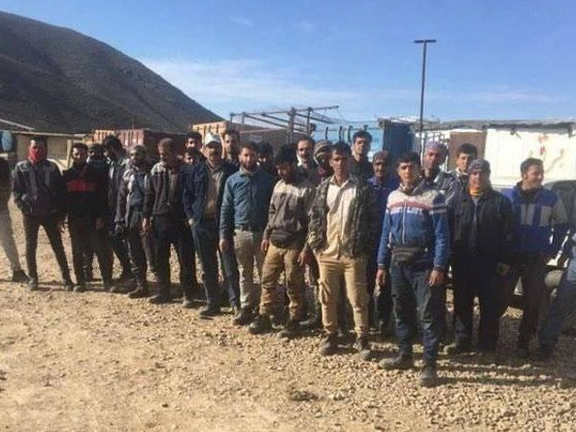
As more and more workers of Iran’s energy sector are going on strike, Iran International has obtained information that sheds light on their inhumane working conditions.
In an audio file sent to Iran International and verified by our contacts, a man recounts the ordeal of contract workers in the companies active in oil, gas and petrochemical industries.
The worker especially talked about the case of himself and his colleagues working under contract by the Persian Gulf Petrochemical Industries Corporation, aka Persian Gulf Holding, where a $170-million embezzlement case at one of its subsidiaries put the company on spotlight last winter.
Persian Gulf Holding is a large Iranian quasi-governmental company that claims to be an independent entity but practically it is a large part of the government-controlled energy industry with 15 subsidiaries. Regime insider Abdolali Ali-Asgari – a former head of the country’s state broadcaster is the current CEO of the company.
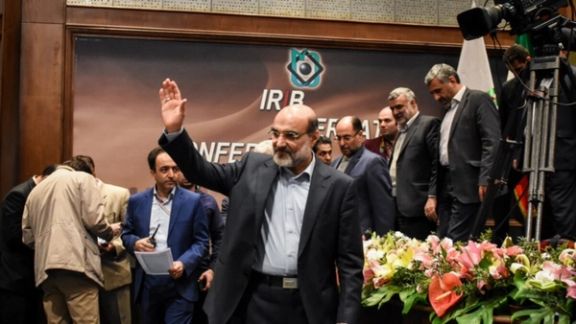
Describing their situation as “stuck in hidden slavery,” the worker says the problems stem from the special status of a few well-connected senior managers and systematic corruption in the energy industry.
“Iran’s oil industry mafia takes advantage of the workers, especially project and contract workers, and forces them to work in terrible conditions," he said.
With double-digit unemployment and ever-falling currency, workers have little choice to find other employment paying them more than the minimum wage of $120 a month.
Workers' lives are not important for managers; wages are meager and are paid with delays; there are no weekend breaks; the managers are selected from those with links to senior officials and do not do anything but sit in their ivory towers with their laptops; and when workers go on strike to demand changes, the security forces threaten the them and their families to break their strikes. These are just some of the gravamina of the worker in his audio file.
He went on to say that several workers have died in the past few months due to non-compliance of companies with safety issues, but the authorities do not let such incidents to be reflected in mainstream media.
The worker claimed that the firms which employ them sign contracts with the government in euros and dollars but pay workers in rials and often two or three months late.
One of the main reasons that the information about the plight of oil industry workers does not make news is that their workplaces are usually located in remote areas with poor connectivity to big cities, making them vulnerable to pressure by their employers.
In an interview with Iran International on Sunday, journalist Reza Hajihosseini described the situation of these workers as a case of “dehumanization,” noting that the way the employers treat the workers reminds us of a leaked video showing how jailors treated prisoners in Tehran’s notorious Evin prison.
Javad Abbasi Tavallali, a journalist with firsthand experience about the working conditions in Asaluyeh -- a city in Bushehr province and home to the majority of the country’s energy plants and refineries – told Iran International that almost all these government contractors, such as Petro Sina Arya, PetroPars, and Petro Paydar Iranian, are affiliated with the Revolutionary Guard.
“These companies make the best use of a lack of media coverage about their actions and a lack of workers unions,” he said, adding that “the exploitation and the disasters that are taking place in Asaluyeh are known to the government thanks to regular reports by Khatam-al Anbiya Construction Headquarters – the engineering wing of the IRGC – for decades.”
The worker's statement comes on the backdrop of a renewed round of strikes by Iranian factory workers, including workers in the country's oil industry.
Since Saturday, workers of more than 30 oil, gas, steel and petrochemical companies in Asaluyeh and Kangan in Bushehr province, Dehloran in Ilam province, Gachsaran in Kohgiluyeh and Boyer-Ahmad province, and many more started another round of strike demanding wage increases in the face of more than 50 percent annual inflation.

In a move to denounce the arbitrary incarceration of a Belgian aid worker in Iran, his niece locked herself in a cage in the western city of Tournai on Saturday.
Olivier Vandecasteele was detained in 2022 on trumped-up charges and sentenced to 40 years in prison by the judiciary of the Islamic Republic.
He also received a sentence of 74 lashes for alleged “spying and cooperation with the United States, money laundering and currency smuggling.”
The symbolic move by Manon Vandecasteele, however, was aimed at denouncing any progress for the release of her uncle and godfather.
Approximately a hundred people gathered on the Grand Place where Manon locked herself in a small steel cage.
Putting on a white jumpsuit and a blindfold, the 19-year-old knelt on the ground while the crowd applauded.
Increasing public awareness and mobilizing the public are two objectives Manon hopes to achieve through her campaign for the release of the humanitarian worker.
Belgium and Vandecasteele’s family believe he is innocent and a victim of hostage taking by the Iranian regime.
Belgium's justice minister said in January that Vandecasteele had been imprisoned "for a fabricated series of crimes" and had been sentenced as retribution for a 20-year jail term Belgian courts imposed on Iranian diplomat Assadollah Assadi in 2021.
Assadi, 50, a former attaché at the Iranian embassy in Austria, was convicted of plotting to bomb a gathering of the exiled opposition group Mujahedin-e Khalq Organization (MEK) near Paris on June 30, 2018.
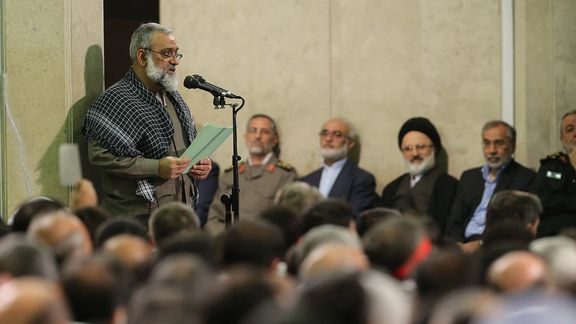
The instructor of Zionists in espionage, terror, sabotage is Satan, “this is their millennia-old profession,” a senior commander of Iran’s Revolutionary Guard says.
Gen. Mohammad-Reza Naghdi, speaking Sunday to Fars news agency controlled by the IRGC, made the anti-Semitic remark amid a torrent of daily attacks by Islamic Republic officials against Israel.
The renewed rhetoric began just a few weeks after Iran concluded an agreement with Saudi Arabia to restore diplomatic relations and according to Israeli officials, instigated attacks by Palestinians in early April.
Naghdi, who is a deputy to IRGC's chief commander, went on to say that while Satan guides the Zionists, Iran’s regime “is led by saints” and its mission is to inspire light in the hearts of men. “Some have been awakened” and even voluntarily provide top-secret information to the Islamic Republic.
“Sometimes they are shocked how the Iranians found a particular secret,” he said. “They search and search again for a spy and cannot find one, unbeknownst to them that many of their personnel are cooperating out of conviction.”
Naghdi, like many other IRGC officers, is adept at propaganda, having been raised in a religious milieu where fantastic stories are told and told again to build faith in the Shiite ideology. However, faced with multiple crises regime officials seem to have resorted more intensely to twisting reality to justify their policies or deflect criticism.
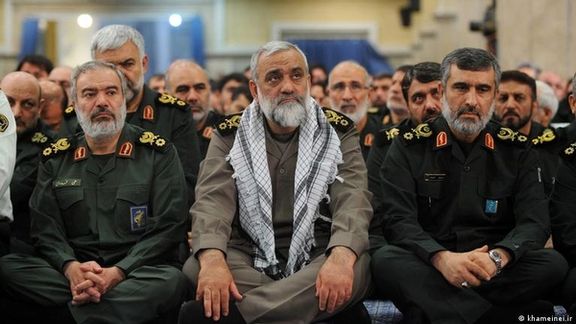
Recently, a leaked audio recording showed how an intelligence official used bizarre and conspiratorial statements in a speech to try to explain away multiple problems the regime faces.
In fact, since July 2020, evidence has piled up that Israel has deeply penetrated Iran’s security barriers and has succeeded in major sabotage operations against nuclear and military targets. The regime in Tehran and particularly the IRGC have lost face after telling the people for four decades that they are very strong in security and military spheres.
Their myth shattered, their failures in the economic sphere now loom even larger. The economy is in tatters and tens of millions of Iranians have sunk into poverty. Last year, the regime faced the most intense protests in its four-decade history, and large-scale unrest can resume at any moment.
Naghdi claimed that last year 10,000 attacks took place against Israel, taking credit for standing behind what the regime calls “the resistance front.”
“This is the revenge of the Islamic Revolution; the destruction of the Zionist regime,” he said.
Naghdi also echoed statements by other senior officials in the past few days that Israel’s power of deterrence has been broken and not only it is unable to intimidate Iran, but also it can no longer deter the Hezbollah and Palestinian militants.
He also claimed that the Islamic Republic has almost driven out the United States from the region, highlighting the US defeat in Afghanistan and the hasty withdrawal.
“They escaped from Afghanistan and most of them also escaped from Iraq and the rest will also leave. They have been defeated, and this trend will continue,” Naghdi claimed. He also mocked the US and Britain for not being able to do anything when their servicemen were detained by the Revolutionary Guard, in 2016 and 2007 respectively.
Claiming that people throughout the world follow the ideology of Iran’s regime, Naghdi asked, “In which era in history we, or any other country, had such an influence? I have estimated that daily 100,000 experts wake up, go to work, get paid in different countries just to overthrow the Islamic Republic regime…”
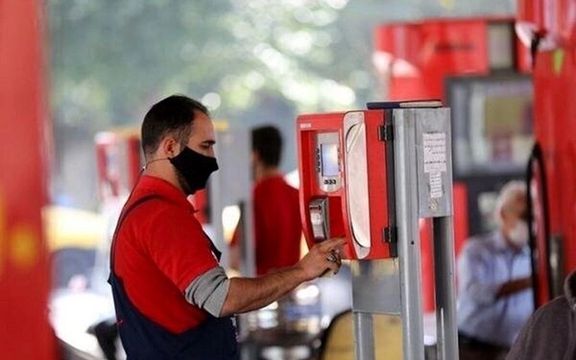
Amid nationwide strikes by workers in Iran’s energy production industry, officials have warned that the country is facing serious problems in supplying gasoline.
Hossein Aghayan, a former director of the supply department of the National Iranian Oil Refining and Distribution Company (NIORDC), says the rise in gasoline consumption is a result of heavily subsidized low prices, ILNA reported on Sunday.
The NIORDC is part of the country’s oil ministry and performs all operations relating to refining and distribution of oil products.
“One of the reasons for the growth of consumption is that the price is low. When they did not raise the price of gasoline at the right time, they should have expected its consequences,” Aghayan said, noting that if the authorities move to increase the price now, it will have a detrimental effect on an already inflation rate and will lead to increase in prices of other goods.
“If the prices are not raised, the unbridled rising consumption will continue,” Aghayan warned.
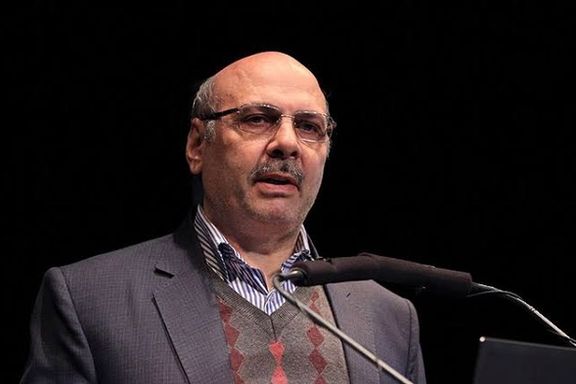
As part of a populistic approach to the economy, the Islamic Republic sells gasoline at extremely low prices, charging less than 10 US cents per gallon, or less than 3 cents per liter, while neighboring oil-producers have much higher prices, more in line with international market rates.
For years there has been talk of adjusting prices, but since 2018 Iran’s currency has dropped 12-fold and any increase needs to be very big to meaningful in US dollars.
One of the reasons that the Islamic Republic did not manage to increase fuel prices was the fear of triggering more protests, as the country was convulsed by the boldest wave of unrest following the death in custody of Mahsa Amini in September 2022.
In November 2019, a government decision to increase fuel prices by 50–200 percent triggered a cycle of protests and unrest across the country that lasted for over two weeks. During this time, angry protesters torched hundreds of gas stations, banks, and government buildings.
In March, Iran International released a classified document outlining the proceedings of a meeting of various government officials from different departments at the presidential office in late February according to which strategic fuel reserves had dropped to a dangerously low level, forcing major repairs at refineries to be delayed allowing maximum production for the time being.
The meeting decided to advise officials to avoid any public remarks or suggestions that could be interpreted as an intention to raise current fuel prices.
According to Aghayan, the main concern of the authorities at the moment is controlling the supply chain so that long lines would not form at the gas stations across the country.
He also made several suggestions on how to control the consumption of gasoline, such as stricter rationing plans and decreasing daily quotas for citizens, as well as raising fuel prices more than threefold.
“In the past, we imported super or premium gasoline and mixed it with light naphtha, and there was no problem, but if we want to supply high-quality gasoline, we have to import it,” Aghayan underlined.
In addition to extremely low prices that do not encourage saving fuel, Iran also faces gasoline and diesel shortages due to a lack of refining capacity. The low prices also lead to millions of liters of fuel being smuggled out of Iran daily, which betrays a large-scale smuggling network.
The NIORDC head, Jalil Salari, said on Saturday that about 10 million liters of diesel fuel is smuggled out of the country per day, claiming that it is about 10 percent of the country’s total daily production.
Iran has one of the biggest reserves of oil and natural gas and its economy is chiefly dependent on the revenues from crude oil exports. But due to sanctions and mismanagement it has failed to modernize the energy sector in general, with power shortages most of the year.
Systematic corruption is not something new in Iran's oil-dependent economy but recently criticism is intensifying over the government’s energy management. The situation has been grave in the past several years but since the administration of Ebrahim Raisi assumed office in 2021, the entire energy management system is going haywire even faster, drawing backlash from people and even regime officials.
Russia has also started exporting gasoline and diesel to Iran by rail this year for the first time since it lost its traditional customers over its invasion of Ukraine.
Since Saturday, workers of the oil, gas and petrochemical industries in Iran startedanother round of strike demanding wage increases in the face of more than 50 percent annual inflation.